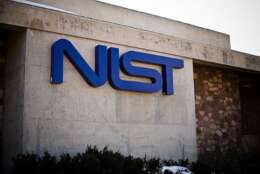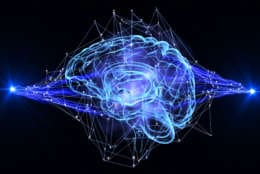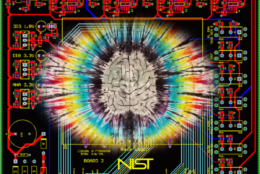Artificial Intelligence
-
The Pacific Northwest National Laboratory (PNNL) in Richland, Washington, has turned to Microsoft for high-performance computing requirements. In what it calls a multi-year collaboration, the lab and the software giant will apply artificial intelligence to speed up research in clean energy. For details, Federal Drive Host Tom Temin spoke with PNNL Associate Director and Chief Digital Officer, Brian Abrahamson.
January 29, 2024 -
“We’re not going to be able to create innumerable amounts of requirements for all potential applications of AI and machine learning," a NIST official said.
January 29, 2024 -
The national security community is stronger when users can take advantage of a connected foundation for secure innovation. But as classification levels for certain workloads increase, how can agencies ensure a seamless user experience while still protecting vital data and applications—and how should this work in an era of multicloud environments?
January 26, 2024 -
This legislation comes at an opportune time: Cybercriminals are getting smarter by the day, carrying out more sophisticated attacks at a higher volume than ever before. As technologies like artificial intelligence continue to proliferate, and organizations become increasingly digitized, the risk of breaches resulting in material impact grows.
January 23, 2024 -
Artificial intelligence has grown too big for anyone to ignore. Now the Pacific Northwest National Laboratory, in south-central Washington state, has established a center for artificial intelligence.
January 16, 2024 -
Join moderator Justin Doubleday, and agency and industry leaders to learn how agencies are implementing artificial intelligence and machine learning tools to enhance cybersecurity initiatives.
January 16, 2024 -
The federal government has been using or developing AI for several years. Section 10 of the EO now provides uniform direction for federal government agency efforts to develop and use AI in their operations.
January 15, 2024 -
HSGAC Chairman Gary Peters says legislation is ‘forthcoming’ in the areas of customer service and AI.
January 11, 2024 -
While the buzzword of 2024 may be artificial intelligence, or some derivative like generative AI or large language models, the biggest challenge and focus for federal IT community will continue to be the people.
January 09, 2024 -
In today's Federal Newscast: A former federal cyber leader finds her next gig. NIST warns that American adversaries could poison AI data. And the Pentagon is ordering a 30-day review to look into the secrecy surrounding Defense Secretary Lloyd Austin’s hospitalization.
January 09, 2024 -
Federal News Network asked a panel of current and former federal executives for their opinions about 2023 and what federal IT and acquisition storylines stood out over the last 12 months.
January 08, 2024 -
By next year, 75% of government agencies will have launched at least three enterprise-wide initiatives for AI-assisted automation, according to Deloitte. And 60% of agency investments in AI and data analytics will be designed to have a direct impact on real-time operational decisions and outcomes, Deloitte says.
January 08, 2024 -
At the National Science Foundation (NSF), artificial intelligence has become a high priority agenda item. Recently, it appointed a new special assistant to the director to focus on AI.
January 08, 2024 -
With the pace in which AI and generative AI has been rolled out to the public, red-teamers are playing catch-up, with their team facing a significant deficit. There’s a lot for them to address in the near term, and in many cases, they’ll need to learn on the fly.
January 04, 2024
















